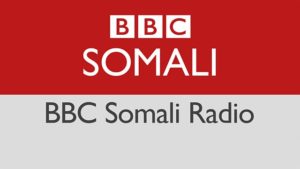By Judy Maina, Alleastafrica
NAIROBI – For the BBC Somali service, decades of outstanding reporting has earned for it an unrivaled reputation and credibility among the ethnic-Somali communities around the world, thanks to lack of competition and veteran journalists equipped with sufficient knowledge and experience for the Somali language and culture.
 With its excellent appraisal, the radio, one of the world’s most reputed radio stations broadcasting in Somali had enjoyed a top rating, becoming a household name for millions of Somalis across the world since it was Established in 1957.
With its excellent appraisal, the radio, one of the world’s most reputed radio stations broadcasting in Somali had enjoyed a top rating, becoming a household name for millions of Somalis across the world since it was Established in 1957.
In recent years, the London-based radio had expanded its operations, opening its second largest bureau in Nairobi. According to sources at the BBC, the department has hired at least 15 journalists, nearly all Somali-Kenyan journalists in the past three years.
However, a year-long investigation by Alleastafrica discovered that despite claims that the radio provides journalists with “world-class opportunities to learn and develop inside the BBC.” The radio practices employment prejudices towards qualified Non-Kenyan Somali journalists trying to secure jobs at the BBC Somali department
The extensive investigation has also exposed that qualified non-Kenyan Somali journalists have been denied of employment opportunities at the BBC because of a lack of Kenyan work-permits down to their nationalities as opposed to the international labor which requires employers to secure work permits for their new and old employees.
One Kenyan-based Somali journalist makes a good example for the employment discrimination at the BBC. The prominent Somali journalist who asked not to be named had applied a vacant broadcasting position at the BBC Somali service bureau in Nairobi in 2014 having attended a previous interview.
Owing to his qualification and expertise, one would hardly think his application would be rejected. However, after three months he held his hopes in the offing, he was contacted by the BBC recruitment team, bringing a startling answer “in response to concerns of fair recruitment process previous test results were discarded.” The email from the BBC said as seen by Alleastafrica.
Stunned by the response, the well-known Somali reporter has protested, forcing the BBC to make a new assessment which was scheduled to take place on December 2014. In the meantime, he was subsequently contacted by a member of the BBC panel (who interviewed him) to inform him that his application was successful.
It would have made a good news for him, but bad news never stopped to appear in his email inbox. Even though he was finally offered the job with the full knowledge of his non-Kenyan status, he was still required to obtain a Kenyan employment permit.
But for him, it was an indirect employment refusal knowing the infeasibility of getting a work permit without the support of an employer.
During the investigation, documents reviewed by Alleastafrica showed evidence of the selective recruiting criteria and preference of Kenyan-Somalis over Somali journalists, a practice often used by BBC bosses.
Read more: BBC’s Somali Service hits lowest rating in decades
Source: AlleastAfrica


